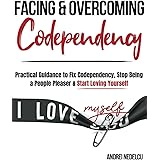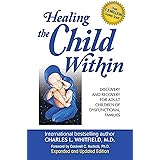The conversation around faith and sexual identity within Christian communities is often complex and fraught with tension. In the accompanying HIM podcast, Dr. Mark Yarhouse, a distinguished Professor of Psychology at Wheaton College and director of its Sexual and Gender Identity Institute, offers invaluable insights into navigating this sensitive landscape with conviction, civility, and compassion.
Dr. Yarhouse, a renowned expert who has consulted with organizations like the National Institute of Corrections and contributed to American Psychological Association panels, brings a wealth of research and practical experience to the discussion. His work, including over 100 peer-reviewed articles and several books such as *Understanding Gender Dysphoria* and *When Children Come Out*, emphasizes a thoughtful approach rooted in both Christian orthodoxy and a deep understanding of human experience.
Understanding Sexual Identity: Beyond Simplistic Labels
A critical starting point for any meaningful dialogue is a nuanced understanding of sexual identity. Dr. Yarhouse introduces a three-tiered distinction: attractions, orientation, and identity. This framework helps differentiate between fleeting feelings, enduring patterns of attraction, and how an individual chooses to define themselves.
For example, someone might experience same-sex attractions, which if strong and persistent, could indicate a same-sex orientation. However, whether they adopt a “gay” identity is a separate, personal decision. This identity often involves resonating with a broader LGBTQ+ culture, which typically emphasizes inherent goodness and the moral permissibility of same-sex relationships, a perspective that may diverge from traditional Christian worldviews.
The Spectrum of Experience in Christian Contexts
Within the Christian community, individuals navigating their sexual identity exhibit a wide range of experiences. Some may acknowledge same-sex attractions but choose not to identify as “gay” or to act on those attractions, striving to align their lives with a traditional understanding of Christian sexual ethics. Others may identify as gay Christians, seeking to reconcile their faith with their orientation, even if it means forging unique paths within or outside conventional church structures.
It’s crucial for church leaders and parents to recognize this diversity. Rather than making quick assumptions, a posture of curiosity and careful listening can open doors to deeper understanding and more effective pastoral care. Simply having same-sex attractions or an orientation does not inherently define a person’s salvation or their desire to follow Christ.
Cultivating a Cultural Ambassador Mindset
Dr. Yarhouse highlights two common, unhelpful extremes in Christian engagement with sexual identity: the “culture warrior” and the “cultural capitulator.” The culture warrior views these conversations as purely political, fearing that any empathy concedes ground. Conversely, the cultural capitulator uncritically accepts all societal shifts without robust theological reflection.
Instead, Dr. Yarhouse advocates for Christians to be “cultural ambassadors” of the Kingdom of Heaven. Drawing from Richard Mou and Martin Marty, he outlines three essential characteristics:
-
Conviction: Remaining firm in deeply held biblical beliefs regarding marriage and sexuality.
-
Civility: Engaging in respectful and courteous dialogue, even amidst disagreement.
-
Compassion: Showing genuine empathy and understanding for the lived experiences of individuals navigating these complex issues, especially when their journey differs from one’s own.
In addition to these three Cs, Dr. Yarhouse implicitly adds a fourth: Curiosity. Asking good questions and actively listening are fundamental to compassionate engagement. This approach encourages Christians to move beyond assumptions and seek to truly understand the individual’s story.
The Power of Listening and Personal Narratives
Dr. Yarhouse’s career trajectory underscores the transformative power of personal connection. Initially approaching these topics with a more “dispassionate” academic lens, his extensive counseling and research with “thousands of different participants” led to a profound “softening” of his heart. He observed the varied, complex, and vulnerable stories of individuals navigating faith and sexual identity.
This experience reinforces the importance of listening, not just hearing. Dr. Yarhouse shared an anecdote about a pastor unsure how to meet a transgender person seeking to visit their church. His advice was profound: “I feel like I’m meeting you at about chapter seven of your life, and I haven’t had a chance to hear about chapters one through six. But I’d like to.” This illustrates that effective pastoral care or relational engagement begins with genuine curiosity about a person’s life journey, struggles, and hopes.
Without understanding the preceding “chapters”—their experiences, their faith journey, their challenges, and their questions—it’s impossible to offer truly relevant support or guidance. Quick judgments or pre-packaged answers often miss the mark and can alienate individuals seeking connection and belonging within a faith community.
Practical Implications for Christian Communities
For church leaders, youth ministers, and parents, applying these principles means fostering environments where individuals feel safe to share their experiences without fear of immediate condemnation. It involves educating oneself and one’s community on the nuances of sexual and gender identity from a Christian perspective, recognizing that not every individual’s journey will fit a singular mold.
Furthermore, it challenges the notion that someone must “clean up their act” in one specific area before being welcomed into the church community. As the podcast host Dan Chun aptly notes, if pastors had to ensure everyone had “cleaned up all their acts,” there would be no members, including pastors themselves. The core issue remains one’s relationship with Christ, not their orientation. There are certainly people who love Jesus who are gay, and their faith journey is just as valid and complex as anyone else’s.
Ultimately, pursuing genuine connection and understanding is paramount. Dr. Yarhouse’s work serves as a vital resource for the Christian community, guiding them towards a posture that honors biblical truth while extending radical grace and empathy to all navigating their faith and sexual identity.











